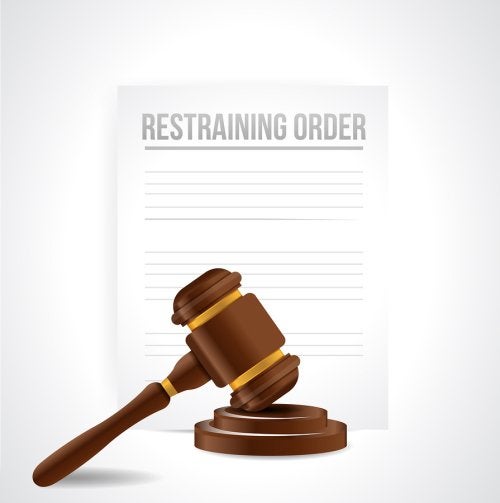-
Preparing for Your Appearance in Family Court
Going to family court can be an intimidating experience, especially if it’s your first time. However, having a family attorney on your side will make all the difference. A family law attorney near Pikesville will advise you as to what you can expect from your day in court, how you can prepare, and how you should conduct yourself during the proceedings. Your family attorney will also likely review the details of your case with you and help you practice answering questions if you expect to give testimony.

Childcare Arrangements
In most cases, children should not be taken to family court. The exception is if the judge wishes to speak privately with the children. You can ask your family lawyer about this, but in most cases, it’s necessary to arrange childcare. To reduce your children’s anxiety, you can simply tell them that you have an appointment.
Documents
Talk to your attorney about the documents you should bring to the hearing. If you aren’t sure whether you should bring a particular document, err on the side of caution and bring it along just in case. For the average child custody case, petitioners and respondents might bring records of their correspondence with each other, logs of correspondence with the minor child and educational records such as report cards and progress reports. Records of correspondence with the child can help to either prove or disprove a parent’s continuous communication with the child and the ongoing parental relationship. Parents might also keep records of the visitation schedule with the child.
Appearance
It should go without saying that attending a hearing in family court is a formal affair. Make a good first impression by dressing appropriately for the occasion. For men, a suit is always appropriate, but a shirt with a collar and a pair of slacks should be considered the bare minimum. Ladies may wear a pants or skirt suit, dark, non-patterned dress, or dress pants paired with a long-sleeved blouse. It’s best to avoid wearing flashy, skintight clothing, revealing clothing, sneakers, or open-toed shoes.
Arrival
It’s possible that your hearing may not start on time. However, you should always arrive a little early. You’ll need to get your bearings, check in with the court officer, and get last-minute advice from your family law attorney.
-
Types of Protective Orders
A type of restraining order, known as a protective order, is a type of court order that plays an integral role in domestic violence law in Baltimore County . Protective orders are usually, but not exclusively, issued against other family members, household members, or former intimate partners. Family court attorneys can help you obtain an appropriate type of protective order. Your attorney will typically obtain a temporary order first, prior to being able to request a permanent order of protection. A temporary protective order goes into effect for no longer than six months, although it is typically in place for a much shorter period of time. Despite the name, a permanent protective order is not actually permanent. It goes into effect for a longer period of time; it may last for months or up to a year. However, your attorney may be able to get the protective order renewed or extended if you are still in danger.
Maryland domestic law also classifies these court orders according to whether the petitioner has had a relationship with the harasser or abuser. If so, then it is officially known as a protective order. If not, then your attorney will request a peace order on your behalf.

-
Effective Communication Methods with Your Ex
Divorce law is complex, which is why it’s best to have a divorce attorney in Owings Mills on your side to protect your interests. Although divorcing spouses often want the case to be resolved as quickly as possible, it’s necessary to remember that divorce isn’t always a one-time issue; if you share children in common with your spouse, you’ll need to be able to communicate effectively with him or her for years to come. Making the divorce process as amicable as possible may help prevent contentious child custody issues in the future and it will certainly improve your communication with your ex.

Agree on a Method
The first step toward effective co-parenting is a matter of logistics: Deciding which communication methods you will use. It may be necessary to make a phone call or have a face-to-face conversation in some cases, but if your relationship with your ex is strained, then it’s best to use more impersonal methods whenever possible. E-mail is an excellent choice because it gives you time to choose your wording carefully before responding. Plus, you can save all of your received and sent e-mails in case they are needed for future litigation. Regardless of which methods you choose, you should never use a child as a messenger.
Keep Each Other in the Loop
Agree to keep each other in the loop. Tell your ex about the important things going on in your child’s life (e.g., school pictures, immunizations, and major temper tantrums) and ask that you be kept informed if something happens at the other parent’s house that you need to know about.
Avoid Putting the Kids in the Middle
Children need stability and support . Witnessing hostility between their parents can inflict real psychological damage on children that can have lasting effects. Make an agreement with your ex to hide disagreements from the kids and to never make disparaging remarks about the other parent in front of the children.
Use Professional Language
Perceiving your relationship with your ex as a business relationship can support effective co-parenting. Use courteous, professional language with your ex when speaking, texting, or e-mailing. After writing an e-mail to your ex, take a minute to reread it before you press “Send.” Make sure there are no word choices or stylistic selections that could be misinterpreted. For example, writing something in all capital letters could be interpreted as hostility.
-
What Is the Legal Definition of Negligence?
If you consult a personal injury lawyer in Owings Mills after you’ve been hurt in an accident, you may hear the term “negligence” frequently. As your accident lawyer can advise you, the legal concept of negligence can play an integral role in your claim. Your accident lawyer will need to prove that the other party acted in a negligent manner and that these negligent actions directly led to your injuries or other damages.
When you watch this video, you’ll hear a professional discuss the legal definition of negligence. She explains that a person is found to be negligent if he or she has acted in a manner that departs from the standard of conduct expected of a reasonable person acting in similar circumstances. For example, your accident lawyer may argue that the other driver was negligent because he or she failed to reduce the vehicle’s speed in unsafe weather.
-
An Inside Look at the Divorce Process
If you are eligible for divorce in Maryland , there are several steps you and your spouse must take to legally end your marriage. In addition to making the decision to divorce, you must also settle matters such as asset division, child custody, and spousal support. Working with a divorce attorney serving Owings Mills is a smart choice when navigating Maryland divorce laws; your divorce lawyer will ensure that all relevant issues are covered and that your needs and preferences are met during the divorce process.
Filing Divorce Documents
 The first step in seeking a divorce in Maryland is the filing of at least two documents: A Complaint for Absolute Divorce and a Civil Domestic Case Information Report. These documents must be filed by the plaintiff spouse wishing to end the marriage with the circuit court serving your county, and are associated with filing fees; however, you may be eligible for a fee waiver depending on your circumstances.
The first step in seeking a divorce in Maryland is the filing of at least two documents: A Complaint for Absolute Divorce and a Civil Domestic Case Information Report. These documents must be filed by the plaintiff spouse wishing to end the marriage with the circuit court serving your county, and are associated with filing fees; however, you may be eligible for a fee waiver depending on your circumstances.Serving of Divorce Documents
After the divorce documents have been filed, the defendant spouse is personally served with these documents, as well as a Writ of Summons. The plaintiff spouse will receive an affidavit proving that the papers have been served once this process is complete.
Filing an Answer
Once the defendant spouse receives the divorce documents, he must file an Answer to the Complaint for Absolute Divorce. This document will admit or deny any allegations made in the Complaint. Additionally, the defendant spouse has the right to file a Counter Complaint for Absolute Divorce, which may state grounds for divorce that are different than those of the plaintiff spouse if he disagrees with the original Complaint.
Settlement Process
Before the divorce can be finalized, both spouses must settle issues such as the division of finances and property, child custody and support, and alimony payments. This process is typically aided by the couple’s family court attorneys, and may go through a divorce mediation process or court appearances if the couple cannot come to an agreement on the terms of the divorce.
-
A Father’s Custody Rights
During a divorce and child custody case, fathers often have a notoriously difficult time winning primary or joint custody. To protect their rights, fathers should always have a child custody lawyer in Owings Mills on their sides in court. This video explains more.
Although more and more fathers today are fighting for and winning the type of child custody they want, there is still a tendency in the courts to assume that the mother should be the primary caregiver and custodian for the children. Fathers who want to protect their rights and get as much time with their kids as possible should work with a family attorney with experience in fighting for father’s rights. Fathers must aggressively provide evidence that the custody agreement they are pursuing is in the best interest of the children.
-
Common Requirements in Custody Agreements
Child custody agreements are one of the most difficult parts of negotiating a divorce settlement. As your family law attorney in Owings Mills can tell you, there are many decisions that have to be made, from where the child will live to who gets to see them on the holidays. Here is a look at some of the child custody issues that are part of most cases.
Non-Disparagement Clauses
 In contentious divorces, parents frequently have concerns—often for good reasons—that their ex-spouse will speak badly about them to the children. Fears over this kind of damaging behavior have led to non-disparagement clauses being added to child custody agreements. These clauses can vary greatly depending on the needs of the family, but in general, they are written to ensure both parties agree to avoid saying or doing anything that could affect the relationship between the ex-spouse and the children. In some cases, non-disparagement clauses also prevent this kind of behavior towards other family members, or even towards new spouses should a future remarriage occur.
In contentious divorces, parents frequently have concerns—often for good reasons—that their ex-spouse will speak badly about them to the children. Fears over this kind of damaging behavior have led to non-disparagement clauses being added to child custody agreements. These clauses can vary greatly depending on the needs of the family, but in general, they are written to ensure both parties agree to avoid saying or doing anything that could affect the relationship between the ex-spouse and the children. In some cases, non-disparagement clauses also prevent this kind of behavior towards other family members, or even towards new spouses should a future remarriage occur.Holidays
When families split up, holidays naturally become an issue. Unless parents agree to continue to spend major holidays together, they will need to divide up this time as part of the custody agreement. Some families agree to a set schedule, while others decide to rotate major holidays. Whatever the agreement it is, it is helpful to consider these questions during the custody negotiation process rather than waiting for a holiday to approach.
Expenses
A child support agreement will be part of most custody cases, but what about expenses that go above and beyond those costs, such as summer camps, braces, and school trips? When children have a need or an opportunity that represents an additional expense, will both parents need to agree and split the costs, or can one parent make the decision and either cover the entire cost or still ask the other parent to contribute financially? Many expenses that go above and beyond basic child support will arise during co-parenting, so it is helpful to have a framework to rely on when they occur.
-
Determining the Amount of Alimony
When one spouse is financially dependent on the other during a marriage, the issue of spousal support through alimony payments is determined during the divorce process. Alimony payments may be required only during the divorce process, or for a definite or even indefinite time after the marriage has ended, depending on the needs of the dependent spouse and the financial status of the supportive spouse, amongst other things.
To determine the amount and type of alimony required, a judge will consider factors such as the length of the marriage, the ages of both parties seeking the divorce, and the ability of the dependent spouse to become financially self-supporting in the future. If you believe you should receive alimony or you are concerned about the amount of alimony your spouse is requesting following your divorce, it’s important to seek the help of an experienced family attorney near Owings Mills. Your family lawyer will use his knowledge of alimony laws to ensure the correct amount of spousal support is mandated before your divorce is finalized.

-
Can I Temporarily Modify Child Support for the Summer?
When one parent is paying child support, he or she often wonders if it’s necessary to continue to pay when the children are staying at his or her house. For instance, if the children spend the summer with the non-custodial parent who pays child support, is it necessary to keep making payments during that time? Questions like these can be discussed with your family law attorney in Owings Mills , who can help you understand your rights to modify child support agreements.
Child support cannot be discontinued without a court order. Child support law requires that payments be made continuously, even when the children are staying with the parent making the payments. This is because the other parent still must maintain the household for the children to return to when any visit is over.
Your child support attorney can help you consider whether a modification could be appropriate for your case—for instance, if your earnings have changed after your divorce. Never adjust child support on your own without a court order, as you could face legal trouble over back payments.

-
Terminating Child Support
During a divorce, issues such as child custody and child support payments are determined with the help of your lawyer in Owings Mills . However, when a child’s eligibility for child support has ended, the parent responsible for such payments can petition to terminate the obligation for continued support under Maryland child support law.
If you wish to terminate child support, you must file a court form that states the reason why the support is no longer necessary. These reasons can include the child’s age, marital status, or even his ability to self-support without additional financial assistance. You can find out more about the process of terminating child support mandated by your divorce agreement and how your family attorney can help you if your former spouse or child dispute your request by watching this short video.
